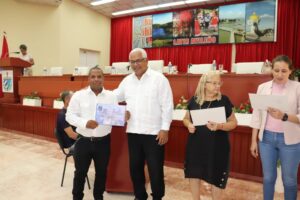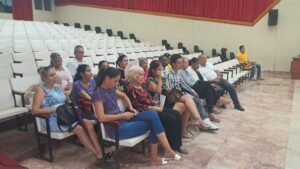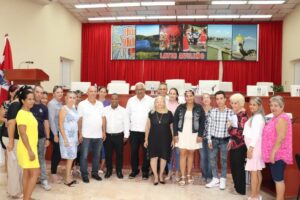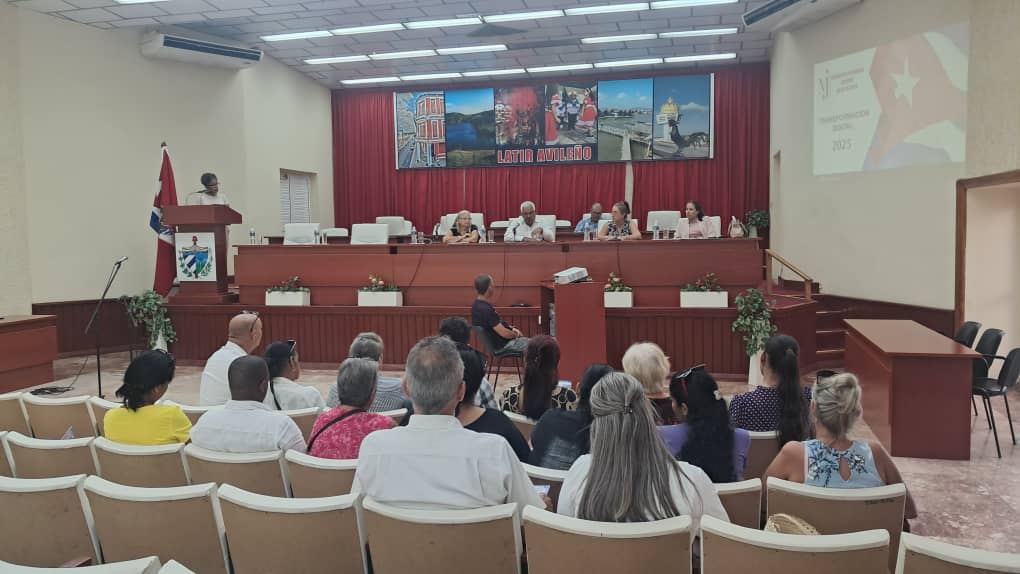Ciego de Ávila has taken a crucial step in the preservation of its memory by becoming the fourth province in Cuba to complete the digitalisation of all its civil registry records. This achievement guarantees that essential certificates such as birth, marriage, and death are protected and easily accessible from any Civil Registry office on the Island.
The intense work, which extended from July and culminated as a tribute on the anniversary of Fidel Castro’s birth, encompassed the municipalities of Chambas, Morón, Majagua, and the Avilanian capital. Zoila Victoria Gutiérrez Jiménez, provincial director of Justice, highlighted the commitment of the workers and specially recognised the municipality of Chambas for its exemplary dynamic, where even the registry director herself actively participated in the scanning.

The Minister of Justice, Oscar Manuel Silvera Martínez, who visited the province to recognise the effort, emphasised that this was a challenge met despite the complex energy situation. «Ciego de Ávila has shown that it was possible,» he stated, highlighting the support of institutions like Etecsa and the determination of the local authorities not to be left behind.
The importance of this project goes beyond safeguarding. Silvera Martínez explained that nationally, nearly 30% of the more than 72,000 civil registry books show deterioration. The digitalisation not only creates a vital backup copy but reduces the handling of the fragile original volumes, transforming the archives into spaces for permanent conservation.
For the Avilanians, this advance translates into a higher quality, uninterrupted, and more efficient registry service. With the information now in digital format, errors are minimised and the everyday procedures of the population are expedited, ensuring the personal history of each family is safeguarded forever.






